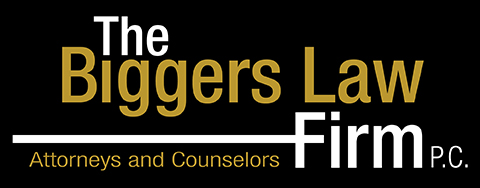William Biggers
Senior Associate Attorney
William is a Senior Associate Attorney at The Biggers Law Firm, P.C., joining the firm in 2019 where he is a fourth generation Dallas lawyer. He was admitted to the State Bar of Texas in October 2019, and to the United States District Court for the Northern District of Texas. William represents clients in matters related to Estate Planning, Wills & Trusts, Probate and Estate Administration and Litigation, Civil Litigation, Real Estate, Employment Law, and General Business.He has litigation and courtroom experience, including representation of clients at mediations, depositions, hearings, and trials.
Elected as the American Bar Association Young Lawyers Division (“ABA YLD”) District 26 Representative for 2021-2023, William also serves on the 2021-2023 board of the Texas Young Lawyers Association as an ABA YLD liaison. He is active in the Dallas Association of Young Lawyers, Dallas Bar Association, Dallas Bar Association Probate, Trusts & Estates Law Section, and the State Bar of Texas Real Estate, Probate & Trust Law Section.
William grew up in Dallas, Texas where he attended Highland Park High School. After graduating from Texas A&M College Station in 2014 with a Bachelor of Science degree in Economics, he worked for Frost Bank as a Commercial Banking Credit Analyst. In 2016, William enrolled in St. Mary’s School of Law and earned his law degree in May 2019. While at St Mary’s, he was elected to serve as a first year Senator of the Student Bar Association (SBA) and had the honor of being elected President of the SBA his second and third years. William was selected to join the Alternative Dispute Resolutions (ADR) Team and competed in several ADR competitions. Notably, he and his partner advanced to the Finals at the National ABA Mediation Competition in Washington D.C. William also had the privilege of organizing and moderating a judicial panel with the Justices of the Supreme Court of Texas at St. Mary’s Law School, which was open to students and the legal community. While at St. Mary’s, William was on the Dean’s List and was honored with the prestigious Order of the Barristers award.
Outside the office, William is active in several legal and social organizations. He is a member of Highland Park United Methodist Church where he volunteers as a middle school small group leader. William is also an Eagle Scout and, as a Boy Scout, had the opportunity to participate in a two-week backpacking trek at Philmont Scout Ranch with his father and two brothers, who are also Eagle Scouts. William met his wife, Amy, at St. Mary’s Law School and they enjoy spending time together outdoors with their two dogs. Some of William’s interests include hiking, golfing, fishing, hunting, running, biking, and cooking.
Professional Associations, Boards, and Honors
- American Bar Association Young Lawyers Division
- District 26 Representative, 2021-2023
- Texas Young Lawyers Association
- ABA YLD Liaison, 2021-2023
- Order of Barristers, National Honor Society
- Texas Bar Association
- Member of the Real Estate, Probate & Trust Law Section
- Dallas Bar Association
- Member of the Probate, Trusts & Estates Law Section
- Member of the Real Property Law Section
- Dallas Association of Young Lawyers
